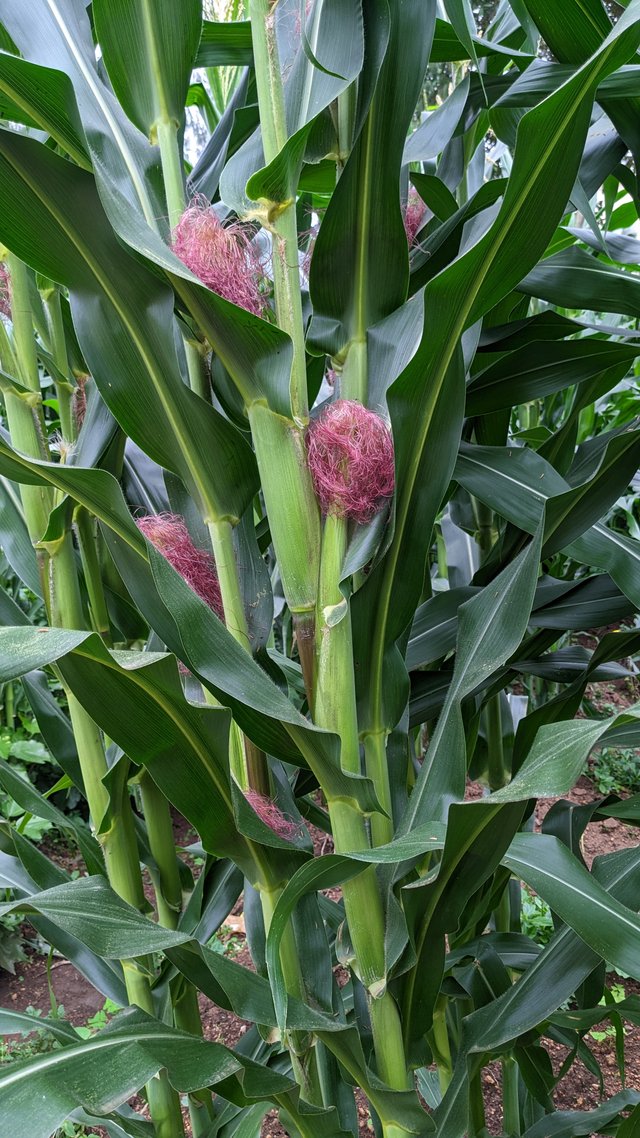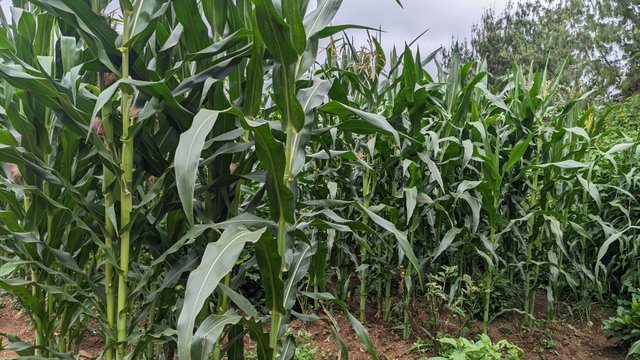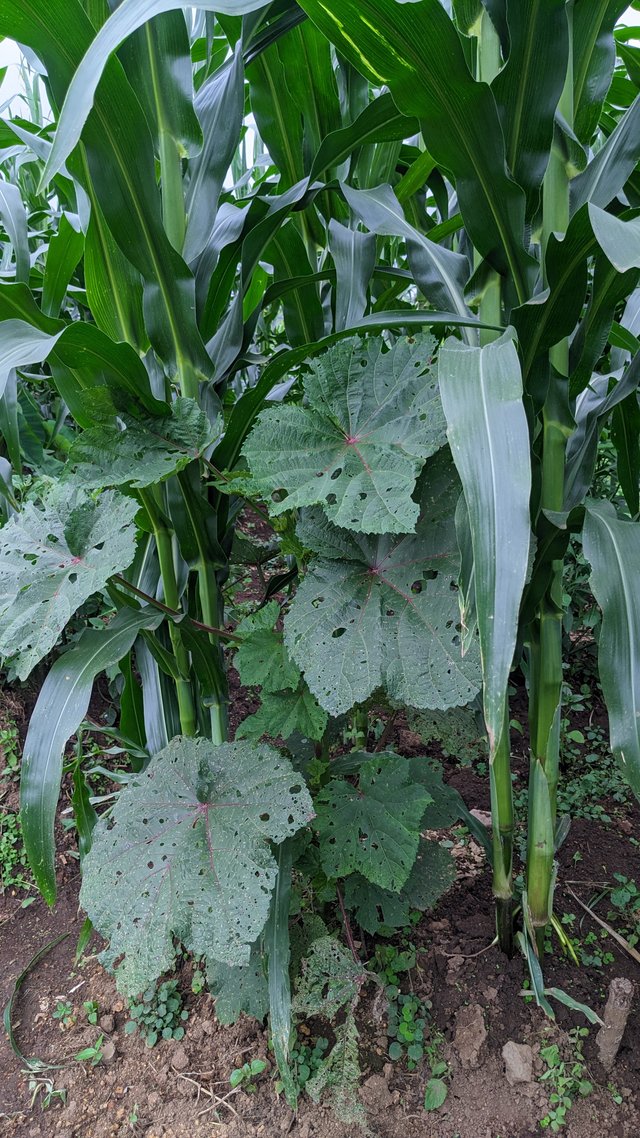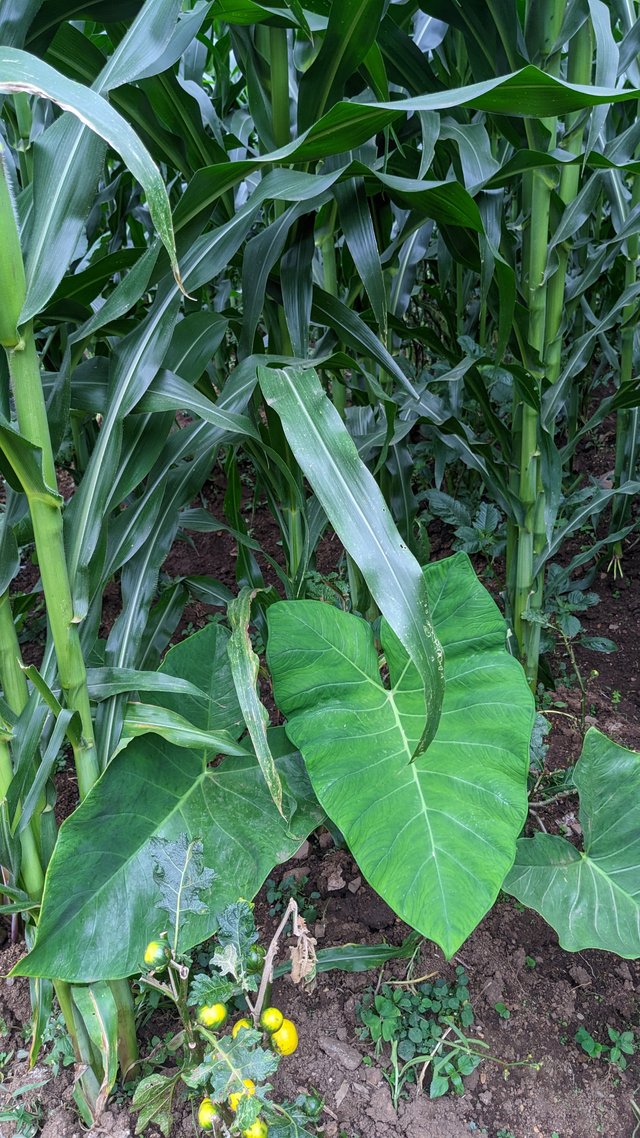Hello family!
Once again, it is my pleasure belonging here.
So, do you think or believe in organic farming? Let me walk you through this reality....
How our land became barren
Growing up with peasant farmers as parents in a land our neighboring village often termed the "land of plenty" due to its fertile and productive nature, we never used inorganic fertilizers to grow crops. However, around 2013/2014, the demand for tomatoes increased , as some buyers came in from Nigeria. Seeing how profitable the business was, many villagers began growing tomatoes for commercial purposes.
This shift led to the influx of inorganic fertilizers, pesticides, and other farm chemicals, which proved detrimental to the health of our soil. After harvesting their tomatoes, the farmers would plant maize. Initially, they observed that the maize grew quickly and produced higher yields. Encouraged by these results, farmers began using inorganic fertilizers on all their crops.
Over time, it became evident that while inorganic fertilizers boosted productivity at first, they were causing long-term harm to the soil, jeopardizing its fertility and the sustainability of food system.
What do you think about the choice of these farmers using inorganic fertilizer?
Prolonged use of these fertilizers disrupts the balance of soil microorganisms, reducing its fertility and leading to soil degradation. In addition, many farmers are not educated about the specific nutrients plants need at different stages of growth. The high concentrations of nitrogen, phosphorus, and potassium in synthetic fertilizers cause nutrient imbalances, which are detrimental to plant. Are these farmers aware of the health impacts of consuming plants grown with synthetic fertilizers? That's a story for another day.
The way out
At the start of this farming season, dispite the inconsistency of rains in Bamenda, a consequence of climate change, i decided to once again test the effectiveness of organic agriculture.
After lightly tilling the soil, I applied a mixture of chicken manure and sorted household waste to each spot where I intended to plant my maize seeds.


Mixed farming is beneficial
Understanding the principle of intercropping and polyculture, i planted maize, okra and coco-yams on the same farm.


Because of the varying nutrient needs and root depths of these crops, there is a harmonious balance in nutrient utilization that will result in a high yield for all of them, do you agree? Moreover, the varying roots structure aids in improving soil fertility as maize's roots may aerate the soil for okra and cocoyam with shorter roots.
To wrap-up, organic agriculture, alongside mixed cropping is possible in Cameroon and can be the solution to the sustainability of our food chain.
Its amazing seeing that one can still eat healthy food with no risk of diseases due to inorganic fertilizers.
Downvoting a post can decrease pending rewards and make it less visible. Common reasons:
Submit
@tipu curate
;) Holisss...
--
This is a manual curation from the @tipU Curation Project.
Downvoting a post can decrease pending rewards and make it less visible. Common reasons:
Submit
Upvoted 👌 (Mana: 0/8) Get profit votes with @tipU :)
Downvoting a post can decrease pending rewards and make it less visible. Common reasons:
Submit
Your post has been rewarded by the Seven Team.
Support partner witnesses
We are the hope!
Downvoting a post can decrease pending rewards and make it less visible. Common reasons:
Submit
Newcomer Team Curation Guidelines For March 2024
Curated by @fombae
Note:
Join Newcomers' community group 👇
https://discord.gg/w39BuwDkcC
We invite all newcomers from 0 to 3 months of existence in steemit to use hashtags #newcomer and #country.
Downvoting a post can decrease pending rewards and make it less visible. Common reasons:
Submit
Thank you for the support
Downvoting a post can decrease pending rewards and make it less visible. Common reasons:
Submit
Indeed mixed farming is great and better because of its product range
Good work man
Downvoting a post can decrease pending rewards and make it less visible. Common reasons:
Submit